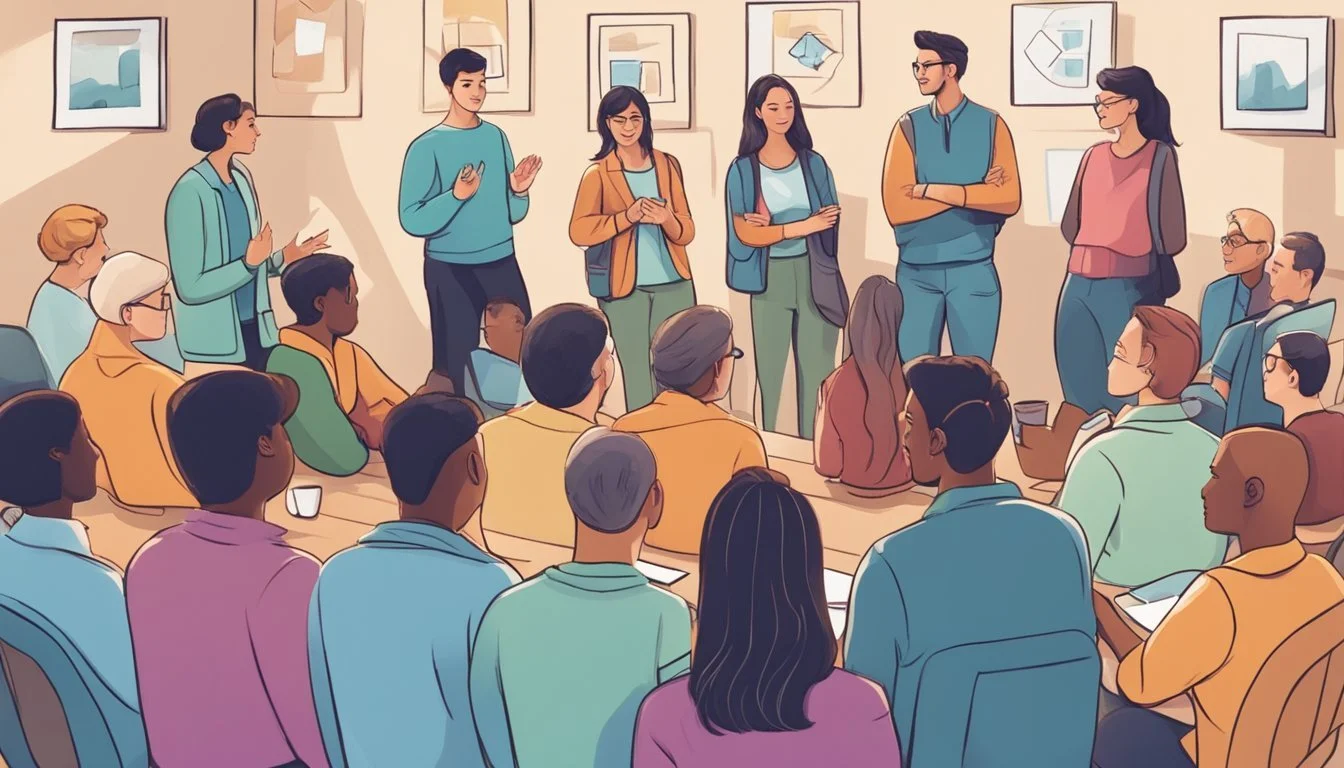Reddit Community Insights on Overcoming Unhealthy Relationship Patterns
Toxic relationship addiction is a complex and pervasive issue often discussed on Reddit. Users share their experiences of being drawn back to harmful partnerships despite recognizing the negative impact. Breaking free from a toxic relationship addiction requires self-awareness, support, and a commitment to personal growth.
Many individuals find themselves caught in cycles of craving validation and experiencing withdrawal-like symptoms when separated from toxic partners. This addiction-like pattern can stem from early experiences, low self-esteem, or a fear of being alone. Reddit threads provide a platform for people to share their struggles and seek advice from others who have faced similar challenges.
Overcoming toxic relationship addiction involves recognizing harmful patterns, setting boundaries, and focusing on self-care. Reddit users often recommend therapy, mindfulness practices, and building a strong support network as effective strategies for recovery. By sharing their stories and offering encouragement, members of these online communities help raise awareness about the reality of toxic relationship addiction and provide hope for those seeking to break free.
Understanding Toxic Relationships
Toxic relationships involve harmful patterns of behavior that can severely impact mental and emotional wellbeing. These dynamics often trap individuals in cycles of abuse and dysfunction.
Characteristics of Toxic Relationships
Toxic relationships frequently involve manipulation, gaslighting, and emotional abuse. One partner may exert control through lying, anger outbursts, or undermining the other's self-esteem.
Physical abuse can also occur in severely toxic situations. The abusive partner may use intimidation or violence to maintain dominance.
Unpredictable mood swings and inconsistent behavior are common. This creates an atmosphere of walking on eggshells for the victim.
Trust erodes as manipulation and deception become routine. The toxic partner may deny wrongdoing or shift blame onto the victim.
Psychological Effects on Individuals
Toxic relationships often lead to anxiety, depression, and chronic stress. Victims may experience symptoms similar to withdrawal when trying to leave.
Self-doubt and lowered self-esteem are common as the victim internalizes criticism and blame. They may struggle to trust their own perceptions.
Hypervigilance develops as individuals constantly monitor their partner's moods. This state of high alert is mentally and physically draining.
Isolation from friends and family frequently occurs. The toxic partner may actively work to cut off outside support systems.
Breaking free can be challenging due to trauma bonding. Victims may feel an addictive pull back to the relationship despite the harm it causes.
The Cycle of Addiction
Toxic relationship addiction follows a predictable pattern of craving, reward, and withdrawal. This cycle traps individuals in harmful dynamics, making it difficult to break free without understanding the underlying mechanisms.
Understanding the Addiction Cycle
The addiction cycle in toxic relationships begins with intense craving for the partner's attention or affection. This triggers a dopamine release in the brain, creating a temporary high.
As the relationship progresses, more frequent or intense interactions are needed to achieve the same level of satisfaction. This escalation mirrors substance addiction patterns.
When the desired attention is withheld, withdrawal symptoms set in. These may include anxiety, depression, or obsessive thoughts about the partner. The discomfort drives individuals to seek relief by re-engaging in the toxic dynamic.
Breaking the Cycle
Recognizing the addiction cycle is the first step toward breaking free. Individuals must acknowledge that their relationship patterns are harmful and unsustainable.
Seeking professional help can provide valuable tools and support. Therapy may focus on addressing underlying emotional needs and developing healthier coping mechanisms.
Creating distance from the toxic partner is often necessary. This can involve going "cold turkey" or gradually reducing contact. Building a support network of friends and family is crucial during this process.
Self-reflection and journaling can help identify triggers and patterns. Developing new interests and hobbies can fill the void left by the addictive relationship and promote personal growth.
Identifying Toxic Relationship Addiction
Toxic relationship addiction involves an unhealthy attachment to destructive patterns in romantic partnerships. It can manifest through various signs and occur in different contexts. Past traumas often play a significant role in its development.
Signs and Symptoms
Common indicators of toxic relationship addiction include:
Constant anxiety about the relationship status
Difficulty setting boundaries
Neglecting personal needs and interests
Repeated cycles of breaking up and reconciling
Intense fear of abandonment
Justifying or minimizing abusive behavior
Individuals may experience physical symptoms like insomnia, changes in appetite, or frequent headaches. Emotionally, they might feel depressed, anxious, or have low self-esteem.
Toxic Relationship Addiction in Different Contexts
This addiction can manifest in various relationship types:
Romantic partnerships
Friendships
Family relationships
Work relationships
In romantic contexts, it often involves intense passion mixed with frequent conflicts. Friendships may be characterized by codependency or enabling behaviors. Family dynamics might include enmeshment or emotional manipulation.
The Role of Childhood and Past Traumas
Childhood experiences significantly influence relationship patterns in adulthood. Individuals who experienced:
Neglect or abuse
Inconsistent parenting
Witnessing unhealthy relationships
may be more susceptible to toxic relationship addiction. These early experiences can shape beliefs about love, self-worth, and what constitutes normal relationship dynamics.
Unresolved traumas can lead to seeking familiar, albeit unhealthy, relationship patterns. This perpetuates a cycle of pain and fear, making it challenging to form healthy attachments.
Impact on Health and Well-being
Toxic relationship addiction can have severe consequences for both mental and physical health. Individuals caught in these cycles often experience profound changes to their overall well-being and sense of self.
Emotional and Psychological Impact
Toxic relationships erode self-esteem and self-worth. People trapped in these dynamics may feel anxious, depressed, or develop symptoms of post-traumatic stress disorder. Their sense of identity can become distorted, leading to confusion about their own needs and values.
Chronic stress from toxic interactions affects emotional regulation. Individuals may struggle with mood swings, irritability, or emotional numbness. This can strain other relationships and impair social functioning.
Many experience a persistent feeling of emptiness or lack of fulfillment. The cycle of highs and lows in toxic relationships can be addictive, making it difficult to find satisfaction in healthier connections.
Physical Health Consequences
The stress of toxic relationships takes a toll on physical health. Chronic elevation of stress hormones can weaken the immune system, making individuals more susceptible to illnesses.
Sleep disturbances are common, leading to fatigue and decreased cognitive function. Digestive issues, headaches, and muscle tension often manifest as physical symptoms of emotional distress.
Individuals may neglect self-care, leading to poor nutrition and lack of exercise. Some turn to substance abuse as a coping mechanism, further compromising their health.
Cardiovascular health can suffer, with increased risk of high blood pressure and heart problems. The body's stress response system may become dysregulated, affecting multiple organ systems over time.
Building Healthy Relationship Skills
Developing healthy relationship skills is crucial for breaking free from toxic patterns. These skills form the foundation for mutually supportive and fulfilling connections.
Creating and Maintaining Boundaries
Boundaries are essential for preserving personal well-being in relationships. Clear boundaries involve communicating needs, limits, and expectations to partners.
Start by identifying personal values and non-negotiables. Express these calmly and assertively to others. Be consistent in enforcing boundaries, even when faced with resistance.
Learn to say "no" without guilt. Recognize that healthy boundaries protect both individuals in a relationship. Regularly reassess and adjust boundaries as needed.
Fostering Self-love and Self-awareness
Self-love and self-awareness are key components of healthy relationships. Practice self-compassion and treat yourself with kindness. Engage in activities that bring joy and fulfillment.
Develop emotional intelligence by recognizing and understanding personal feelings. Reflect on past experiences and patterns to gain insights into behaviors and triggers.
Seek therapy or counseling to work through unresolved issues. Build self-confidence through positive self-talk and celebrating personal achievements. Embrace personal growth and learning opportunities.
Understanding Respect and Consent
Respect and consent form the bedrock of healthy relationships. Recognize that each person has inherent worth and deserves to be treated with dignity.
Practice active listening and validate partners' feelings. Avoid dismissive or belittling comments. Respect differences in opinions and preferences.
Understand that consent is ongoing and can be withdrawn at any time. Regularly check in with partners about comfort levels and boundaries. Never pressure or coerce others into actions they're uncomfortable with.
Learn to apologize sincerely when mistakes are made. Take responsibility for actions and work to make amends.
The Path to Recovery
Recovery from toxic relationship addiction involves therapeutic interventions, building support networks, and reimagining life after addiction. These steps work together to promote healing and personal growth.
Therapeutic Interventions
Professional therapy plays a crucial role in recovery from toxic relationship addiction. Cognitive-behavioral therapy helps individuals identify and change unhealthy thought patterns and behaviors. Trauma-informed therapy addresses underlying issues that may contribute to addiction.
Group therapy provides a safe space to share experiences and learn from others. Dialectical behavior therapy teaches skills for emotional regulation and interpersonal effectiveness. Some therapists use EMDR to process traumatic memories associated with toxic relationships.
Therapeutic interventions aim to increase self-awareness, build self-esteem, and develop healthier coping mechanisms. Clients learn to set boundaries, communicate effectively, and recognize red flags in relationships.
Support Networks and Resources
Recovery thrives with strong support networks. Support groups like Codependents Anonymous offer understanding and accountability. Trusted friends and family members provide emotional support and encouragement.
Online forums and communities can be valuable resources. Reddit's r/REDDITORSINRECOVERY offers a space for individuals to share experiences and advice. Books, podcasts, and workshops on healthy relationships supplement formal therapy.
Some find solace in spiritual or religious communities. Others connect with mentors who have successfully navigated similar challenges. Building a diverse support network increases resilience and reduces isolation during recovery.
Life After Toxic Relationship Addiction
Recovery opens doors to healthier, more fulfilling relationships. Individuals learn to prioritize self-care and personal growth. They develop a stronger sense of identity and purpose outside of romantic partnerships.
Many discover new hobbies and interests that bring joy and self-fulfillment. Career advancement often follows as energy shifts from relationship drama to professional goals. Improved relationships with family and friends provide a stable foundation.
Dating after recovery involves careful consideration and boundary-setting. Individuals approach new relationships with greater awareness and discernment. Many find that healing from toxic relationship addiction leads to deeper, more authentic connections in all areas of life.



